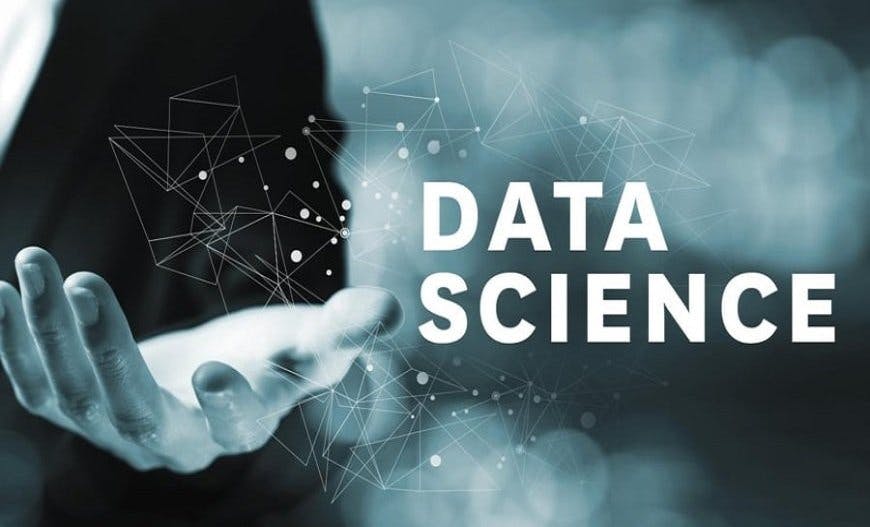Key Benefits of Choosing Data Science Online Training
The demand for data science skills is at an all-time high. Online training provides an accessible and flexible way to acquire these skills. This comprehensive guide explores the key components of data science online training, including benefits, essential topics, learning formats, and tips for success.
Benefits of Data Science Online Training
Online training has transformed the way we learn. Here are some of the key benefits of choosing online training for data science:
Flexibility: Online courses allow you to learn at your own pace and on your schedule. This is ideal for individuals with busy lives, work commitments, or other responsibilities.
Accessibility: Online training is accessible from anywhere, eliminating geographical barriers. You can connect with instructors and fellow learners from around the globe.
Cost-Effectiveness: Online courses are generally more affordable than traditional in-person classes. Plus, you save on travel and accommodation costs.
Diverse Learning Resources: Online training often includes a variety of learning materials, such as video lectures, interactive quizzes, and downloadable resources, catering to different learning styles.
Networking Opportunities: Online training platforms often have forums or community spaces where you can connect with other learners and industry professionals.
Key Topics in Data Science Training
Data science encompasses a wide range of topics. When choosing an online training program, ensure it covers the following key areas:
Data Analysis
Exploratory Data Analysis (EDA): Learn how to explore and summarize data sets using statistical methods.
Data Visualization: Understand the techniques for creating clear and compelling visualizations to communicate data insights.
Statistical Analysis: Gain proficiency in statistical tests and models to analyze data and make informed decisions.
Machine Learning
Supervised Learning: Learn about algorithms used to predict outcomes based on labeled data, such as linear regression, decision trees, and support vector machines.
Unsupervised Learning: Explore algorithms that find patterns and structures in unlabeled data, including clustering and dimensionality reduction.
Deep Learning: Dive into neural networks and their applications, from image recognition to natural language processing.
Programming and Tools
Programming Languages: Gain proficiency in languages commonly used in data science, such as Python and R.
Data Manipulation Libraries: Learn to work with libraries like Pandas and NumPy for efficient data manipulation.
Machine Learning Frameworks: Understand frameworks like TensorFlow and PyTorch for building and training machine learning models.
Data Engineering
Data Collection and Storage: Explore techniques for collecting, cleaning, and storing large volumes of data.
Database Management: Learn about relational and NoSQL databases, along with SQL for data querying.
Big Data Technologies: Understand the basics of big data processing frameworks like Hadoop and Spark.
Business Applications
Business Intelligence (BI): Discover how data science can be used to drive business decisions and strategy.
Data-Driven Decision Making: Learn how to use data insights to inform business practices and optimize processes.
Ethics in Data Science: Understand the ethical considerations and responsible use of data.
Learning Formats
Online training comes in various formats, each with its advantages. Here are some common formats you might encounter:
Self-Paced Courses: Ideal for learners who prefer to set their schedule. You can progress through the material at your own pace, revisiting topics as needed.
Instructor-Led Courses: These offer real-time interaction with instructors and fellow learners. They often include live lectures, Q&A sessions, and group projects.
Bootcamps: Intensive, short-term programs designed to teach specific skills quickly. They are suitable for those who want to immerse themselves in a focused learning experience.
Certification Programs: Provide a structured path to earning a recognized certification in data science. They usually involve a combination of coursework and assessments.
Tips for Success in Online Data Science Training
To make the most of your online training experience, consider these tips:
Set Clear Goals: Define what you want to achieve from the course, whether it's learning a specific skill, advancing your career, or completing a project.
Create a Study Schedule: Establish a regular study routine to stay on track. Consistency is key to success in online learning.
Engage with the Community: Participate in online forums and discussions to connect with other learners and industry professionals. This can enhance your learning experience and provide networking opportunities.
Seek Feedback: Don't hesitate to ask for feedback from instructors and peers. Constructive criticism can help you improve your skills and understanding.
Practice Regularly: Apply what you learn through hands-on projects and exercises. Practice reinforces your knowledge and builds confidence.
Stay Updated: Data science is a rapidly evolving field. Stay informed about the latest trends, technologies, and best practices through blogs, podcasts, and online communities.
Conclusion
Data science online training offers a flexible and accessible way to acquire valuable skills in a growing field. By understanding the key topics, learning formats, and tips for success, you can make informed decisions about your training journey. Whether you're looking to start a career in data science or enhance your existing skills, online training provides the tools you need to succeed.
